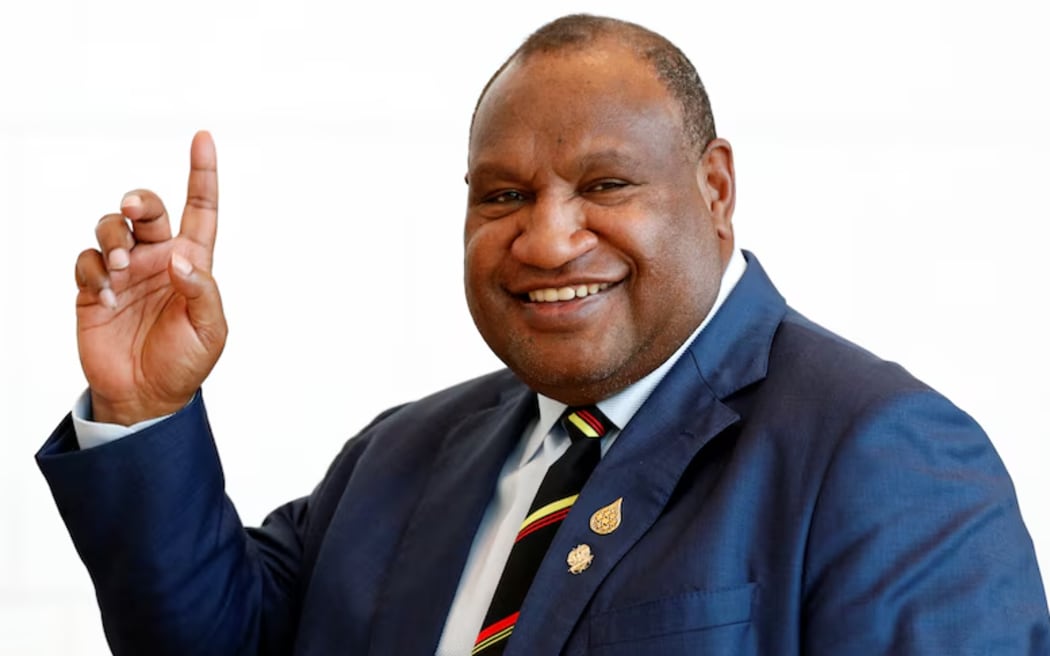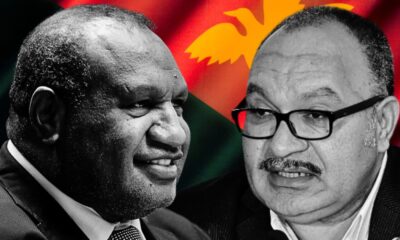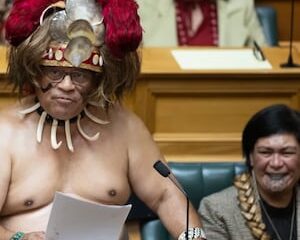World
Papua New Guinea’s PM Marape Evades No-Confidence Motion Challenge

Papua New Guinea’s Prime Minister James Marape successfully avoided a no-confidence motion, thanks to a constitutional amendment enacted earlier this year. The motion was introduced on Wednesday by Sir Puka Temu, the Member of Parliament for Abau Open, with former Prime Minister Peter O’Neill named by the opposition as a potential successor.
The Speaker of Parliament, Job Pomat, clarified in a letter obtained by RNZ Pacific that the Private Business Committee ruled the motion could not be placed on the notice paper due to the amendment passed in March 2023. This constitutional change stipulates that following an unsuccessful no-confidence motion against the Prime Minister and government, no further leadership challenges may be initiated for a period of 18 months.
Earlier this year, a no-confidence motion against Marape was proposed, debated, and ultimately defeated in Parliament in April 2023. Pomat noted that, based on the constitutional provisions, the current motion is barred from proceeding.
In response to the attempt to challenge his leadership, Marape expressed a willingness to confront any opposition. He referred to the no-confidence motion as a “distraction,” emphasizing the need for political stability. “We must stop constant political maneuvering. Fifty years on, our nation deserves better. Leaders must grow up and make responsible choices,” Marape stated during a press briefing on Wednesday.
The political landscape in Papua New Guinea has been marked by frequent challenges to leadership, with the no-confidence mechanism historically serving as a tool for opposition parties. The recent amendment aims to foster a more stable governance environment by reducing the frequency of such motions.
As Marape continues to lead, he faces the ongoing challenge of unifying a politically fragmented landscape while addressing pressing national issues. The constitutional amendment reflects an effort to promote stability, but it also raises questions about the balance of power and democratic processes in the country.
Moving forward, the focus will remain on how the government navigates both internal and external challenges, as well as the implications of the recent constitutional changes on the political dynamics of Papua New Guinea.
-

 Sports2 months ago
Sports2 months agoNetball New Zealand Stands Down Dame Noeline Taurua for Series
-

 Entertainment2 months ago
Entertainment2 months agoTributes Pour In for Lachlan Rofe, Reality Star, Dead at 47
-

 Entertainment3 weeks ago
Entertainment3 weeks agoNew ‘Maverick’ Chaser Joins Beat the Chasers Season Finale
-

 Sports2 months ago
Sports2 months agoSilver Ferns Legend Laura Langman Criticizes Team’s Attitude
-

 Politics4 weeks ago
Politics4 weeks agoNetball NZ Calls for Respect Amid Dame Taurua’s Standoff
-

 Entertainment2 months ago
Entertainment2 months agoKhloe Kardashian Embraces Innovative Stem Cell Therapy in Mexico
-

 World3 months ago
World3 months agoPolice Arrest Multiple Individuals During Funeral for Zain Taikato-Fox
-

 Sports2 months ago
Sports2 months agoGaël Monfils Set to Defend ASB Classic Title in January 2026
-

 Entertainment1 month ago
Entertainment1 month agoTyson Fury’s Daughter Venezuela Gets Engaged at Birthday Bash
-

 Sports1 month ago
Sports1 month agoHeather McMahan Steps Down as Ryder Cup Host After Controversy
-

 World1 week ago
World1 week agoSevere Winds Hit New Zealand, Over 100 Flights Canceled
-

 Entertainment1 month ago
Entertainment1 month agoTyson Fury’s Daughter Venezuela Gets Engaged at Birthday Bash





















